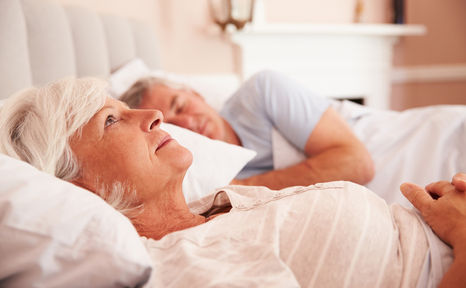By Kathryn Smith, Clinical Psychologist & Dr Curt Gray, Psychiatrist
If the phrase; ‘I slept like a baby’ is far from your vernacular and you’ve noticed a gradual change in your sleep pattern, along with other undesirable physical changes, chances are you’ve fallen victim to the human phenomenon of aging. Along with the physical changes that occur with aging, our sleep also deteriorates as we get older.
Having difficulty falling asleep or staying asleep is common in older adults and this can be due to a number of factors, including changes in sleep architecture and circadian rhythm. Sleep is broken up into repeated stages throughout the night, including light, deep and REM sleep (the active dreaming phase). Typically, older adults spend more time in the light phase and therefore don’t get the satisfaction of a deep sleep. In addition to this, the natural circadian rhythms that coordinate timing of bodily function is affected as we age, with the body tiring earlier in the evening therefore resulting in an earlier than normal wake time.
But the real disparity in the human phenomenon of aging, is even though our sleep is on the decline, our sleep needs remain the same throughout adulthood. This may be how the term “Nanna Nap” got its name; with less deep and REM sleep throughout the night, daytime fatigue leads older people to nap. However, unless the nap is kept short (20 minutes or less) and before 3pm, daytime sleep can be counterproductive and lead to even less quality night time sleep.
Aging physiology aside, sleep disturbance in the older adults can also be due to psychological, social or environmental factors, like changes in accommodation, death of a partner, illness or chronic health concerns. Older adults also tend to have more worries or concerns that can keep them awake at night or lead to a restless sleep. It is important for older adults to talk about their feelings and emotional experiences just as they would present physical complaints to a doctor. Talking to a health professional about what is concerning you, at any stage of life, can provide a huge sense of relief, as well as empower you with strategies to manage day to day and probably sleep better at night.
Other effective ways to manage your sleep health include:
- Get regular exercise, particularly weight or resistance training as this has been shown to increase and deepen sleep.
- Learn a relaxation routine, this will vary according to what relaxes you most.
- Avoid alcohol. Contrary to popular belief, it won’t help you sleep. It might put you to sleep but can disrupt your sleep throughout the night.
- Form a worry list. If you are a worrier, write down your worries on a worry list and review them during the day rather than thinking about them at night.
- Attempt to delay your bedtime to decrease chance of early morning waking.
- Stay out of bed when you are not sleeping.
For more information on sleep health, head to our website https://psychologyconsultants.com.au/insomnia/ or if you are suffering from insomnia and group therapy interests you visit www.towardsbettersleep.com.au
